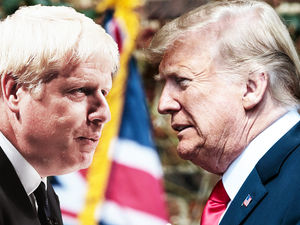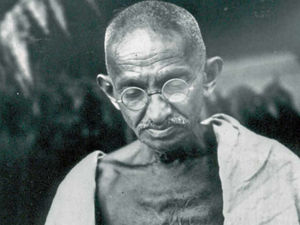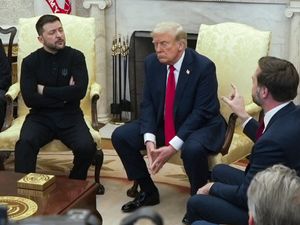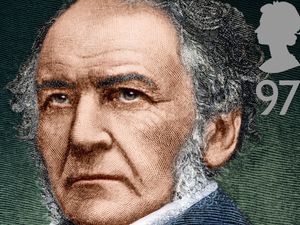Peter Rhodes on rare beasts, hope in Palestine, and politics as a trivial pursuit
Peter Rhodes on rare beasts, hope in Palestine, and politics as a trivial pursuit

I completely overlooked a global event last week. October 18 was World Okapi Day. My apologies to okapies everywhere.
Rumour has it that in next week's Budget, Chancellor Rachel Reeves may ramp up inheritance tax (IHT) by increasing the exemptions on gifts. At present, if you wish to give money to anyone, you must live at least seven years or a portion of your gift may be taxed. Reeves is said to be toying with extending this period to perhaps 10 years. This would put taxpayers under pressure to live longer, while the state would have a vested interest in you dying sooner. And then along comes assisted dying. . . .
According to the Labour grandee Peter Mandelson, Keir Starmer finds much media coverage “trivial.” I bet he does. But then we are a trivial species, living on a trivial sort of island. As Rudyard Kipling put it in The Puzzler, his poem about the English: “They abandon vital matters to be tickled with a straw.”
And what could be more straw-ticklingly amusing than Starmer's spectacles? Having been showered with free specs by Lord Alli, you'd think the PM would at least wear them correctly, with his eyes looking through the centre of the lens. Instead, he peers through the top of the frame. It may be a harmless affectation but I'm sure we trivial folk would be happier if Keir Starmer saw the world as the rest of us see it.
There is a faint hope that peace in the Middle East may get a kick-start from the death of the Hamas leader Yahya Sinwar. I recently came across an interview I did with General Sir Hugh Stockwell who was the last commander of 20,000 British troops occupying Northern Palestine in 1948. After a wave of street fighting, he invited the warring Jewish and Arab fighters to discuss peace terms in Haifa. The Arabs did not show. Looking back on his career, General Stockwell told me he wanted Israel to reach “some accommodation . . . some set-up for the descendants of the original Palestinians.” In other words, a two-state solution.
“I believe the future is hopeful,” smiled Hugh Stockwell. Our interview was in 1983. No change yet.





